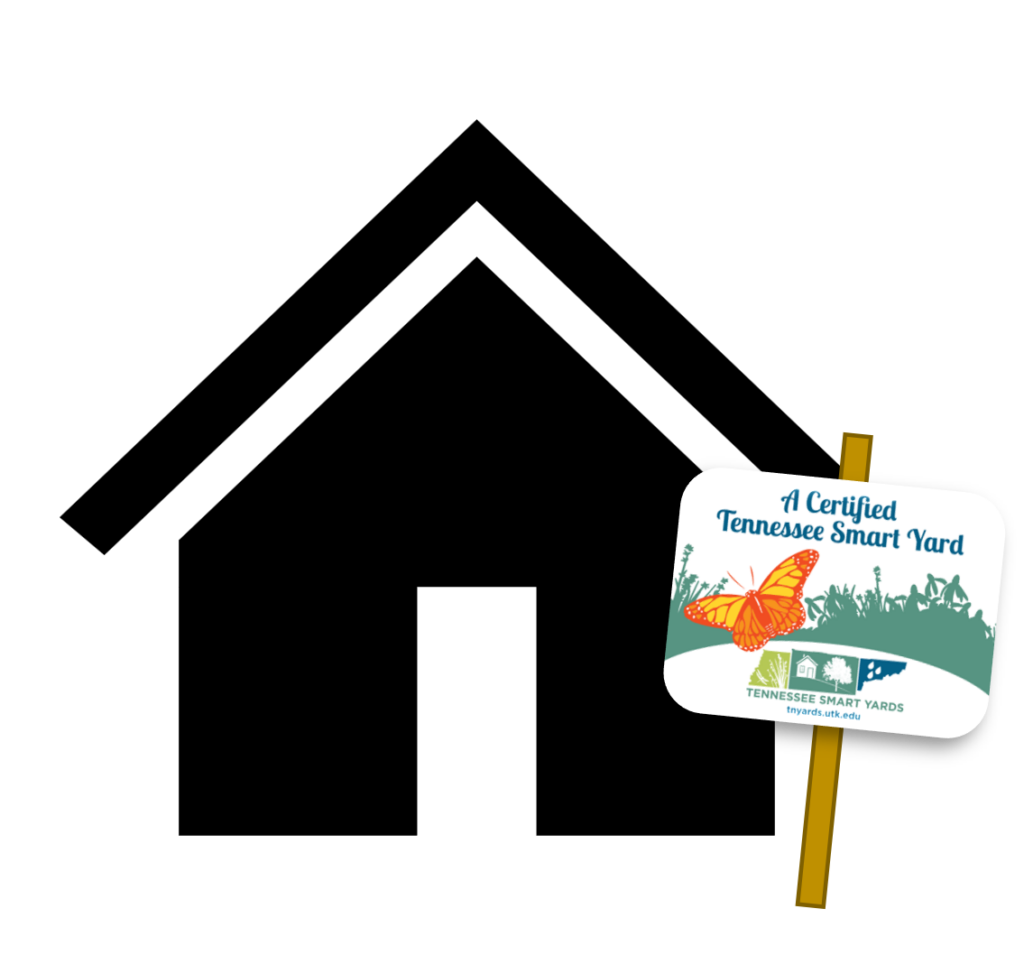Find a full suite of publications at UTHort.com or search the UT Extension Publications database.
Sustainable Landscaping Planning & Plant Selection
Viewing residential landscapes as part of a larger ecosystem with unique niches and growing conditions can help homeowners to make wise decisions when it comes to planning for and installing a landscape design. This publication provides practical tools that will not only help to provide a balanced sustainable design, but meet homeowner needs while providing an attractive aesthetic. [Published February 2020]
Leveraging Your Landscape: A Guide to Evaluating and Planning for Functional, Enjoyable Outdoor Spaces
This publication is intended to help homeowners and landscape professionals analyze and change the function of outdoor spaces. There are interactive checks lists and activities to help you implement this information in your own property. [Published May 2020]
Rainwater: Your Liquid Asset. A Home Stormwater Mapping Exercise
Stormwater is water that falls through rain (or snow) that does not soak into the surface where it falls. In many urban and suburban areas, large amounts of stormwater are produced because the surfaces where rain falls are buildings, pavement or even compacted soil. Stormwater is important because it can result in flooding, erosion, and it can carry sediment and pollutants to our surface waters. For the homeowner, there are many ways to reduce stormwater. But first, it is important to understand how water moves around our homes. This publication provides information along with an assessment of assessing stormwater movement and steps to reduce it around your home. [Published October 2013]
Rain Gardens for Tennessee: A Homeowner’s Guide
This 16-page document is a one-stop-shop for everything you need to plan, design, build, and maintain a residential rain garden in your yard. Rain gardens are shallow depressions that catch runoff from the landscape that soaks into the ground, nurturing native plants and protecting against erosion and water pollution.
Tennessee Native Rain Garden Plant Recommendations
Tennessee receives a lot of rainfall, which can create many benefits in your home landscape if properly leveraged. Rain gardens are planted depressions in the landscape designed to catch and soak in rainwater runoff and planted with species that match the soil moisture conditions present. Many native Tennessee plants that are commonly found along streambanks or in wetlands will thrive in rain gardens. This publication lists native plants and their characteristics for rain gardens in Tennessee. [Updated April 2019]
Improving Stream Channels, Ditches and Lakeshores with Live Staking
Live stakes are cuttings from dormant woody vegetation that can be driven into wet soils of streambanks or shorelines for an easy and cost-effective way to revegetate a bare bank. Just as rebar strengthens concrete by reducing cracking and keeping it together, plant roots can do the same for soil. Trees and shrubs native to Tennessee that are adapted to growing at water’s edge have extensive root systems that work to hold streambank soils in place. This allows the bank to resist erosive storm flows that come with the fast-moving high water that occurs as a
result of heavy rains. Live stakes are a cost-effective way to establish trees or shrubs. Over time, they grow into full trees and shrubs, holding soil in place and providing shade to the stream. Live staking also promotes healthy streams by providing wildlife habitat, protecting, and improving water quality. [Published May 2015]
Landscape Professional Hiring Checklist for a Tennessee Smart Yard
This Hiring Checklist was developed to help residents identify a landscape professional who will consider your unique needs, understand your environmental conditions, and steward the valuable natural resources on and around your property. This checklist is intended to help you keep track of the professional’s qualifications, experience, and commitment to applying Tennessee Smart Yard practices.
Rain Gardens: Protecting Schoolyard Streams from Stormwater Runoff
This is a classroom activity prepared for 4-H Agents, school teachers, or environmental educators to engage their students through inquiry-based learning about the function of rain gardens. This activity is aimed at middle and high school students and can be the basis for planning a schoolyard rain garden project.
Every month, we assemble a 1-page newsletter full of links to timely information for your smart yard. Sign up to receive our monthly newsletter by email. Newsletters developed with input from Downtown Neighborhood Association of Franklin, Williamson County Extension, and Nashville-Davidson County Metro Water Services.
- March 2025
- February 2025
- January 2025
- December 2024
- November 2024
- October 2024
- September 2024
- August 2024
- July 2024
- June 2024
- May 2024
- April 2024
- March 2024
- February 2024
- January 2024
- December 2023
- November 2023
- October 2023
- September 2023
- August 2023
- July 2023
- June 2023
- May 2023
- April 2023
- March 2023
- February 2023
- January 2023
- December 2022
- November 2022
- October 2022
